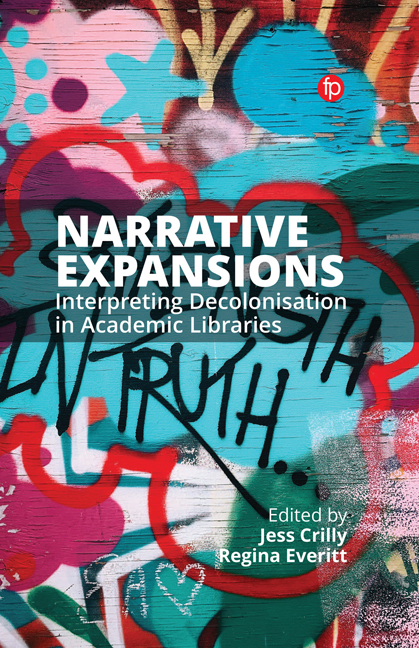15 - Decolonising Library Collections: Contemporary Issues, Practical Steps and Examples from London School of Economics
Published online by Cambridge University Press: 28 January 2022
Summary
Introduction
This chapter examines the impact of decolonisation upon collection development, both in theory and in practice. It starts with a brief definition of collection development, how this has more recently evolved due to multiple influences and pressures and how it can be affected by bias. After, we reflect upon our analysis of London School of Economics and Political Science's (LSE) collections from a geographical perspective, assessing where our collections derive from. The relationship between collections and reading lists is then observed, particularly in terms of how library collections influence how reading lists are developed and how collections contribute to equity, diversity and inclusion issues. Finally, this chapter recommends some practical collection development steps that academic libraries can take, both individually and collectively, to make their collections more diverse, and also to support wider decolonisation initiatives within their parent institutions.
Collection development: an introduction
Library collections have historically been considered the heart of academic libraries, much as libraries have been said to be the heart of the university (Posner, 2019). Collection development is the work undertaken to build these collections and the decisions that are taken to determine how they evolve. Collection development includes many different activities, such as the selection and deselection of material, the acquisition of material and the evaluation of different access options (IFLA, 2020). Collection development is designed with the specific purpose to provide libraries with resources that meet the appropriate needs of their client populations (Gessesse, 2000) in a timely and economical manner (Evans, 1999).
The concept that collection development should ‘advance scholarship and research’ arguably refers back to Charles Coffin Jewett's tenure as the first full-time professional librarian in the USA, at Brown University in the mid-19th century (Desjarlais-Lueth, 1990). Over a century and a half later, this remains the consensus view (Jensen, 1977; Gonzalez-Kirby, 1991; Linden, Tudesco and Dollar, 2018; Scherlen and McAllister, 2019). Later, we will discuss the biases and inequities within curricula that have encouraged calls for greater change and levels of diversity. Therefore, we may question whether the role of collection development is solely to support teaching, learning and research and whether it should also be proactive in trying to influence it as well.
Collection development has been affected by technology and the promise of making processes more efficient, as well as by local pressures on time, staffing and finances.
- Type
- Chapter
- Information
- Narrative ExpansionsInterpreting Decolonisation in Academic Libraries, pp. 225 - 250Publisher: FacetPrint publication year: 2021
- 2
- Cited by



